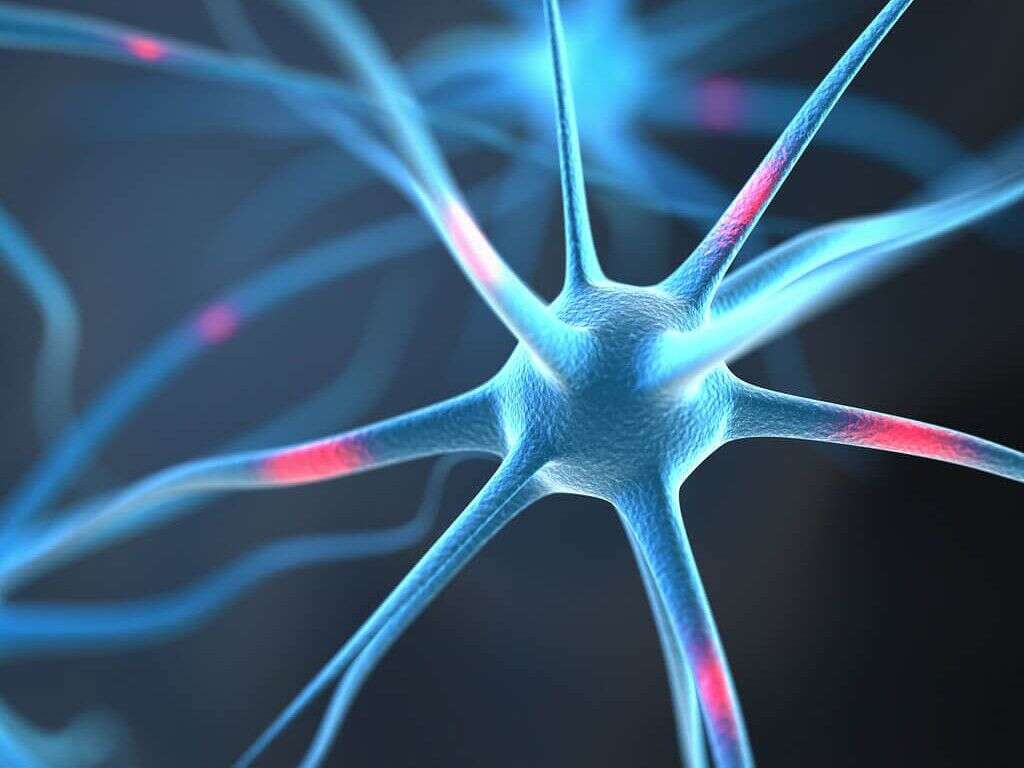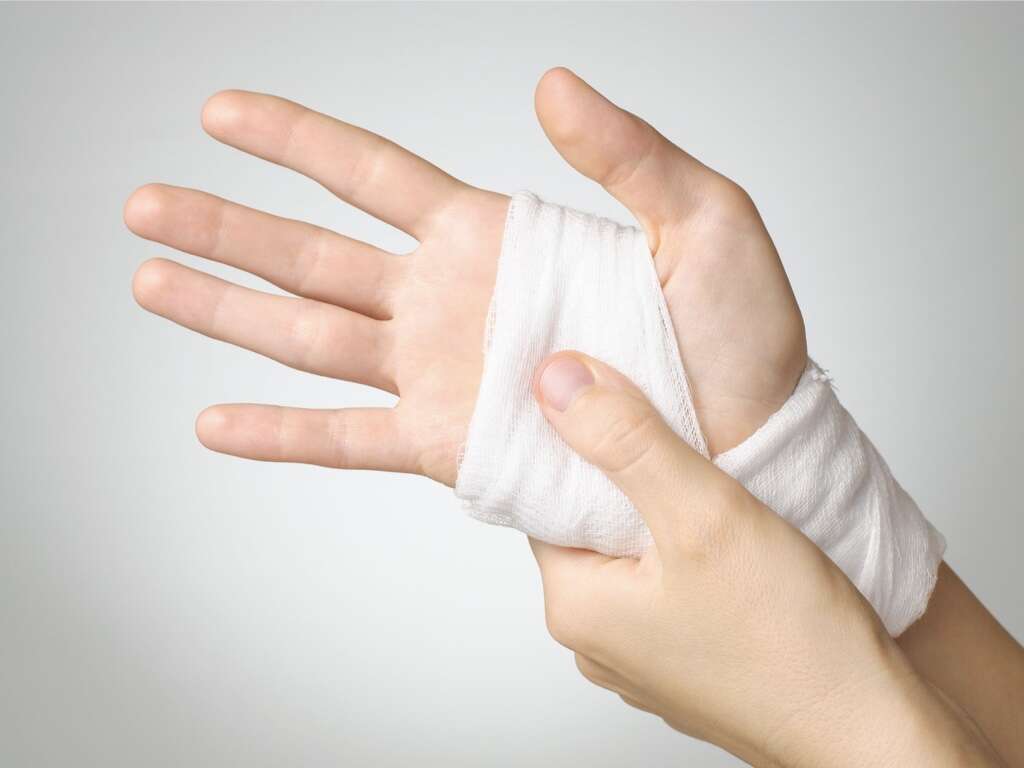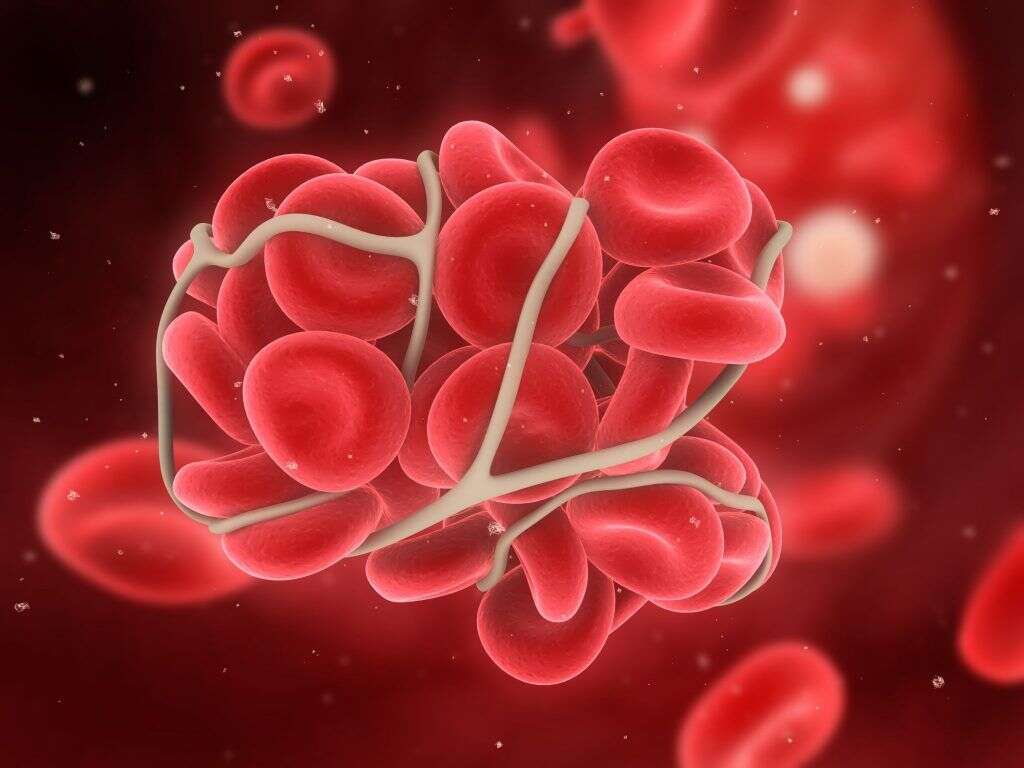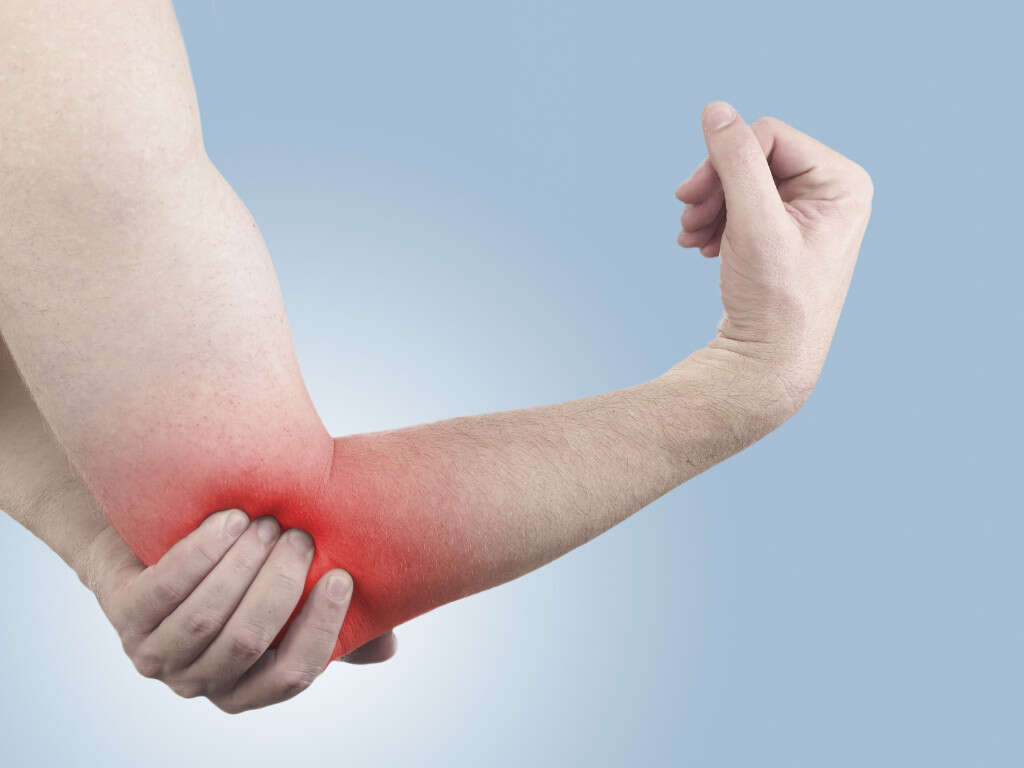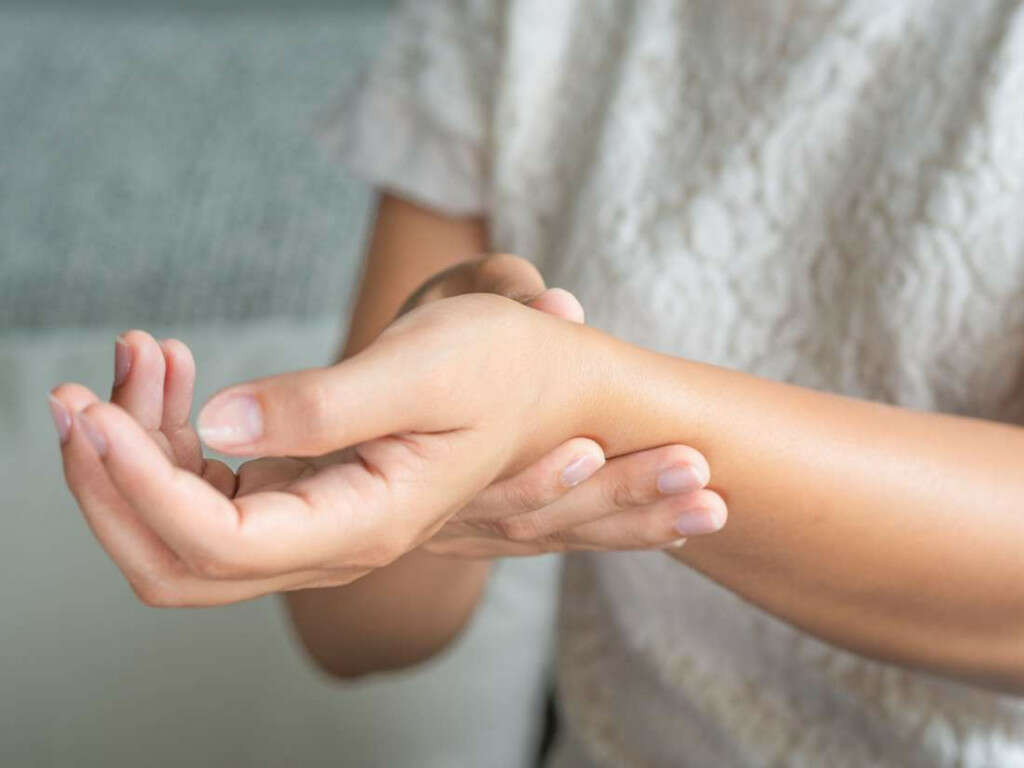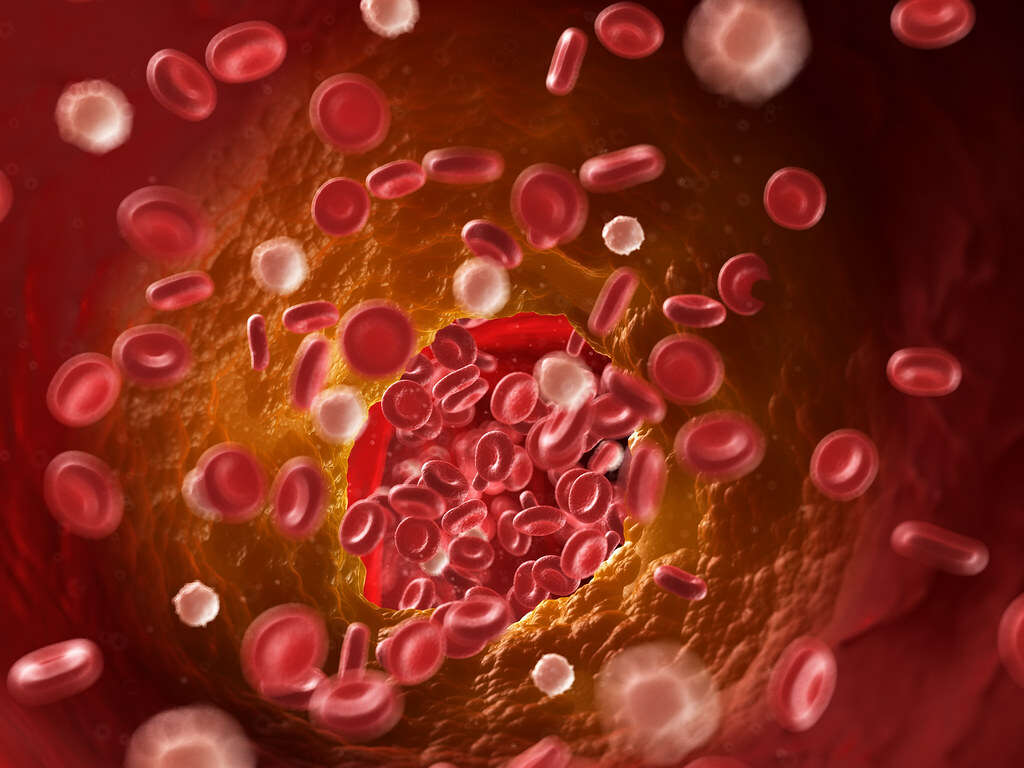10 Causes of Arm Pain
Aches and pains are very much a part of life, especially as we grow older. Such pains are not usually something to be concerned about and will pass without serious complications. Sometimes, though, they are tell-tale signs that there is something wrong and that you should seek medical assistance. Your arms are no exception, so pains in your arms are something that you should not take too lightly.
Our arms are often placed under considerable stress, so damage to the bones, ligaments, joints, tendons and nerves are not uncommon. In addition, pains and other symptoms in the arms can be indicative of problems elsewhere in the body such as the spine and in the cardiovascular system. Symptoms can be caused by problems that range from being mildly irritating, to potentially life-threatening. If you are suffering from pains in your arms, then you should seek the help of a medical expert.
Cause #1: Fractured Arm
We can all get into scrapes from time to time. People that play sports and enjoy other activities are more prone to picking up injuries, but nobody is immune from damage. You could even get hurt on the way to work or when going to the shop to buy a bottle of milk.
It is not often that a fractured arm bone will mean a clean break and even hairline fractures can still be very painful 1https://www.health.harvard.edu/pain/arm-fracture-. If you do suspect that you might have fractured one of your arm bones, you should go to the hospital as soon as possible for an X-ray. Treatment may include resetting the bone to ensure it heals correctly and using a cast to ensure it is protected during the healing process. With the right medical treatment, you should hopefully make a full recovery.
Cause #2: Sprain
Holding together our bones and other body parts are ligaments. These are tough, sinewy strands that connect our bones together. While they can endure quite a lot of force, they are not indestructible, and they can become stretched or torn. This stretching or tearing is what we know as a sprain.
Sprains are quite common and can be very painful. Although painful, they don’t usually present a real threat to your health except for in very serious cases. Treatment will often include painkillers and anti-inflammatory treatments to help relieve pain. It may be necessary to provide strapping to give protection and support while the sprain heals.
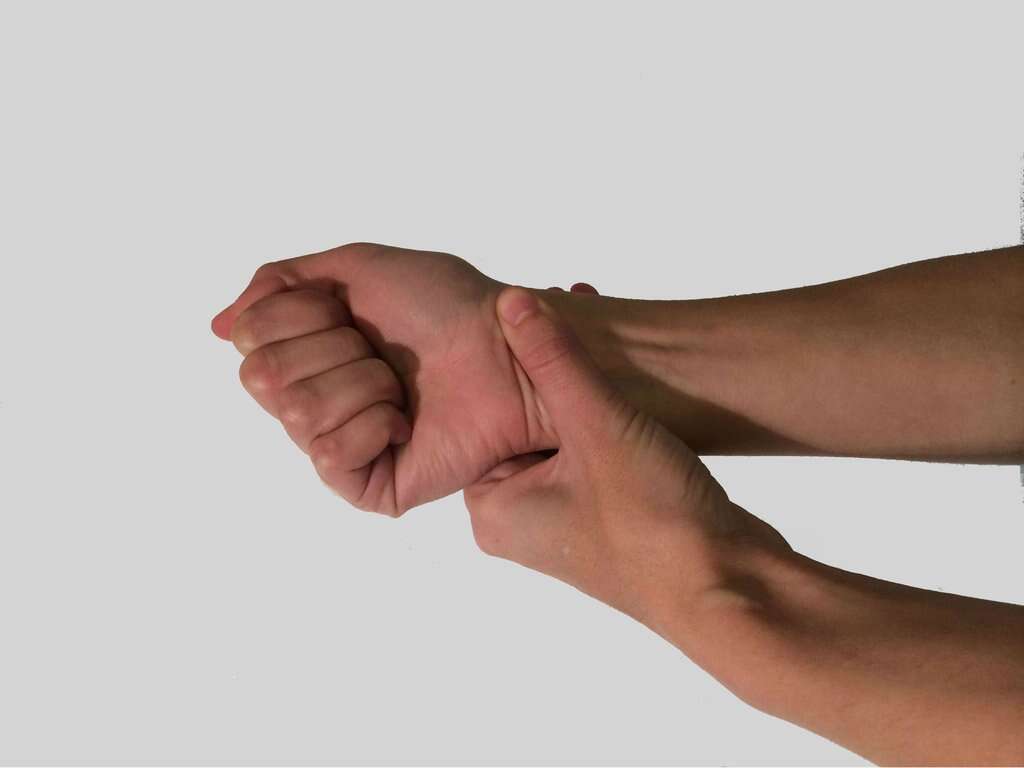
Cause #3: Tennis Elbow
Tendons attach our bones to our muscles, allowing the muscle to move the bone by pulling on the tendon. The tendons are generally tough enough to stand up to the rigours of being pulled on constantly, but too much activity can occasionally lead to problems.
Tennis elbow (properly known as Lateral Epicondylitis) is the condition where the tendons in the elbow become inflamed due to overuse. Unfortunately, healing can take a long time but the good news is that 90% of patients heal with conservative therapy (non-surgical treatment). Rest is a crucial component of conservative therapy, and it is especially important for the patient to stop the triggering activity that caused the lesion. If you suspect that you may have this condition, seek medical attention for proper diagnosis and treatment.
Cause #4: Rotator Cuff Injury
At the top of our arms where they meet our shoulders is a group of muscles and tendons known collectively as the rotator cuff. These muscles are responsible for moving our arms at the shoulder, and they can often be placed under a lot of strain. If this strain is too great, one or more of these muscles or tendons can become damaged. This condition is known medically as a rotator cuff injury.
An injury to the rotator cuff can lead to the shoulder feeling very sore, especially when being used. Rotator cuff injuries can sometimes be treated with anti-inflammatory drugs and physiotherapy. If the damage is severe enough, then it is possible that surgery may be needed.
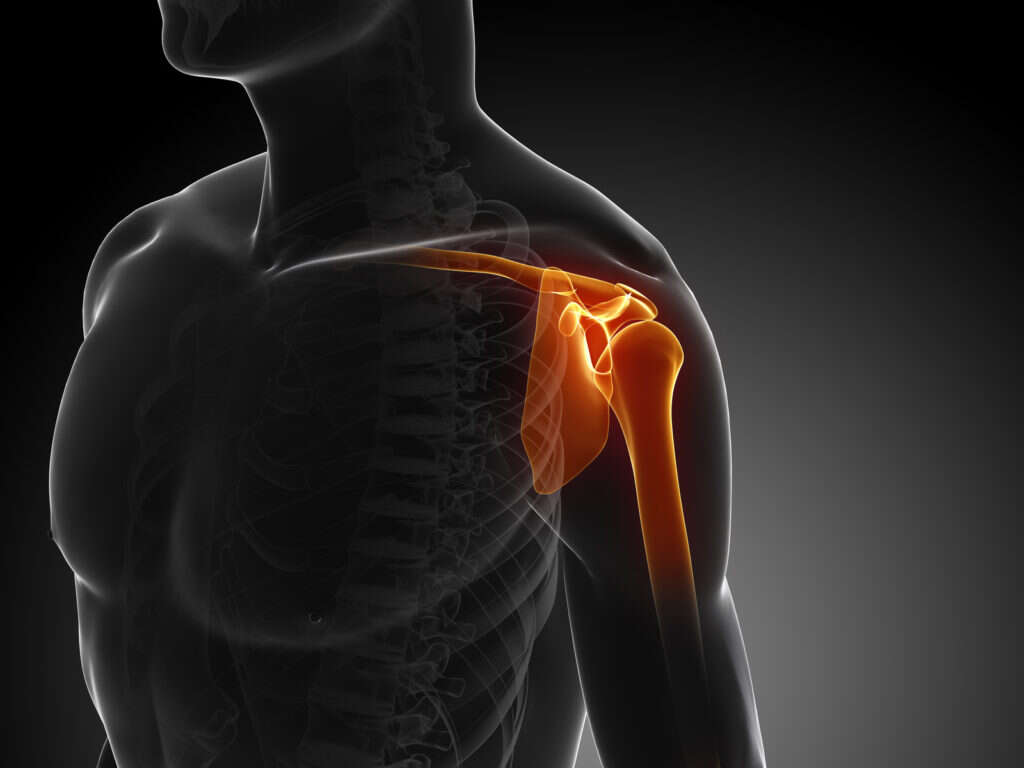
Cause #5: Carpal Tunnel Syndrome
The carpal tunnel is a passageway found at the wrist, through which tendons and nerves pass. Sometimes, the nerves within the carpal tunnel can become pinched, causing the condition known as carpal tunnel syndrome. It is often caused by repetitive movements of the wrist, like playing the piano or typing on a keyboard too often.
Symptoms of carpal tunnel syndrome include pain, tingling sensations, and weakness in the joint and hands. It can often be treated with non-surgical means such as placing the wrist in a splint to help relieve the pressure being placed on the nerve. Surgery is reserved for severe cases and patients that do not respond well to conservative management. Seek treatment in time, though, and symptoms can be limited considerably.
Cause #6: Angina
Angina is caused by impaired blood flow to the heart, and the symptoms are sudden and quite noticeable. The main symptom is a pain in the chest that can range from mild discomfort to more intense pain. The pain can also be present in the arms and shoulders as well.
Any sudden pain in the chest should be diagnosed by a professional as soon as possible. Nevertheless, there are other conditions that can elicit the same kind of pain, such as costochondritis (inflammation of the costal cartilage).

Cause #7: Heart Attack
When the flow of blood to the heart is seriously compromised, a heart attack can occur. This is known medically as a myocardial infarction. The cardinal symptom associated with this condition is a pain in the chest, sometimes this pain can extend to other parts of the body, like the inner part of the left arm, and the neck.
A heart attack is obviously a very serious condition and can lead to a fatality. If you do suspect a heart attack, then you should seek medical attention as soon as possible. Call an ambulance immediately, failure to do so could have catastrophic consequences.
Cause #8: Glenohumeral Arthritis
Arthritis is a condition that is caused by a number of factors. Among the most common are rheumatoid arthritis, osteoarthritis and psoriatic arthritis. Regardless of the cause, the symptoms of arthritis are an inflammation of the joints. This causes swelling, pain and stiffness leading to a loss of mobility.
The glenohumeral joint is located in the shoulder and sometimes can be damaged by many conditions, overuse or simply by aging. It is important to seek medical attention to find out the underlying condition that is causing this symptom to appear.
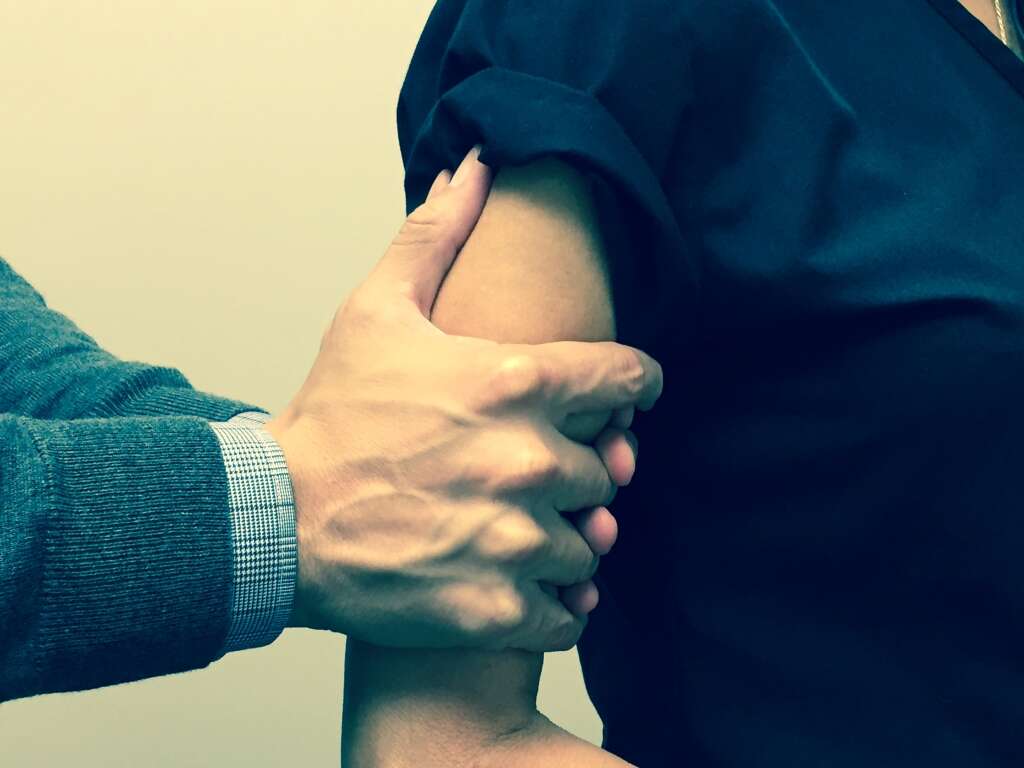
Cause #9: Brachial Plexopathy
Your arms and hands are full of nerves, which are much needed for touch and other senses. These nerves travel down the arm and are found together in the collarbone area in a network known as the brachial plexus. Physical damage to this nerve network can be caused in a number of ways and is known as a brachial plexopathy. Symptoms include pain, numbness and a lack of strength.
Physical Therapy and occupational therapy are the main components of conservative management regarding treatment for this condition. Surgery is usually reserved for severe lesions or patients that do not respond to conservative therapy. It is important to consult with a specialist for proper diagnosis and treatment.
Cause #10: Herniated Disc
Each vertebra in our spine is separated from the others by discs made from a rubbery jelly-like material that helps to provide a cushion between them. These discs are encased in a tough exterior but, sometimes, the softer centre can squeeze through a tear in the exterior. This causes them to be pressed against nerves which, in turn, can cause pain, numbness and inflammation. These symptoms are often felt in the arms.
A herniated disc will often heal by itself in time. Painkillers and other drugs can be administered to help relieve the symptoms while healing takes place. If healing takes too long then physiotherapy may be required and, in severe cases, there may be a need for surgery.



